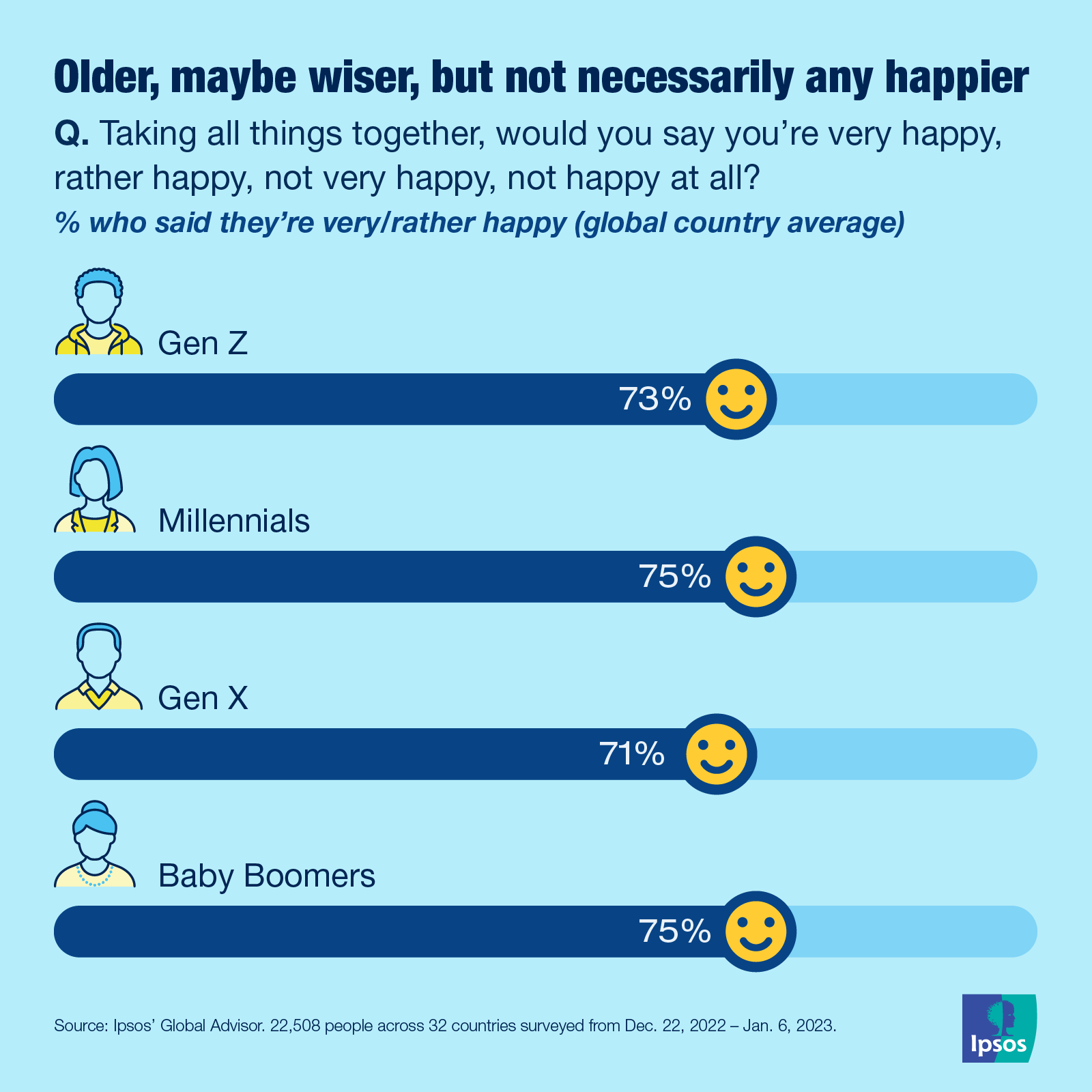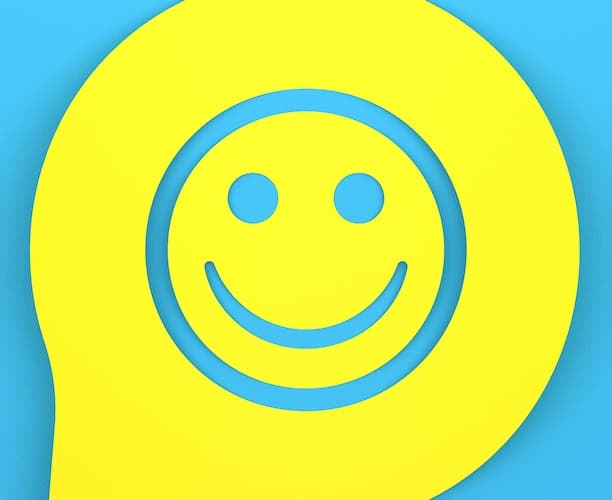

Data Dive: The keys to happiness
Despite all the dark clouds overhead, most of us are feeling pretty sunny these days.
In the midst of the cost-of-living and climate crises, as well as the COVID-19 pandemic and the Russia-Ukraine war, almost 3 in 4 (73%) people*, on average across 32 markets, say they’re rather/very happy. That’s significantly higher than in pre-pandemic days when only 64%**, on average across 28 countries, reported being happy.
How can there be a marked increase of positivity during such negative times?
The answer (like happiness itself) is hard to pin down, but Ipsos’ data analysis finds that personal happiness seems to have more to do with, well, personal circumstances like feeling loved and that your life has meaning and less to do with geopolitical issues like the local economic and political situations.
Here’s a look at how a range of life factors, from age to gender to income, correlate with whether we feel glad or sad.
- Maybe money does buy happiness…
Most of us have heard the maxim that “money can’t buy happiness.” During these turbulent economic times that sentiment certainly sounds soothing — but it turns out it’s likely not true. In fact, polling via Ipsos’ Global Advisor online platform finds the higher a person’s income the happier they are likely to be.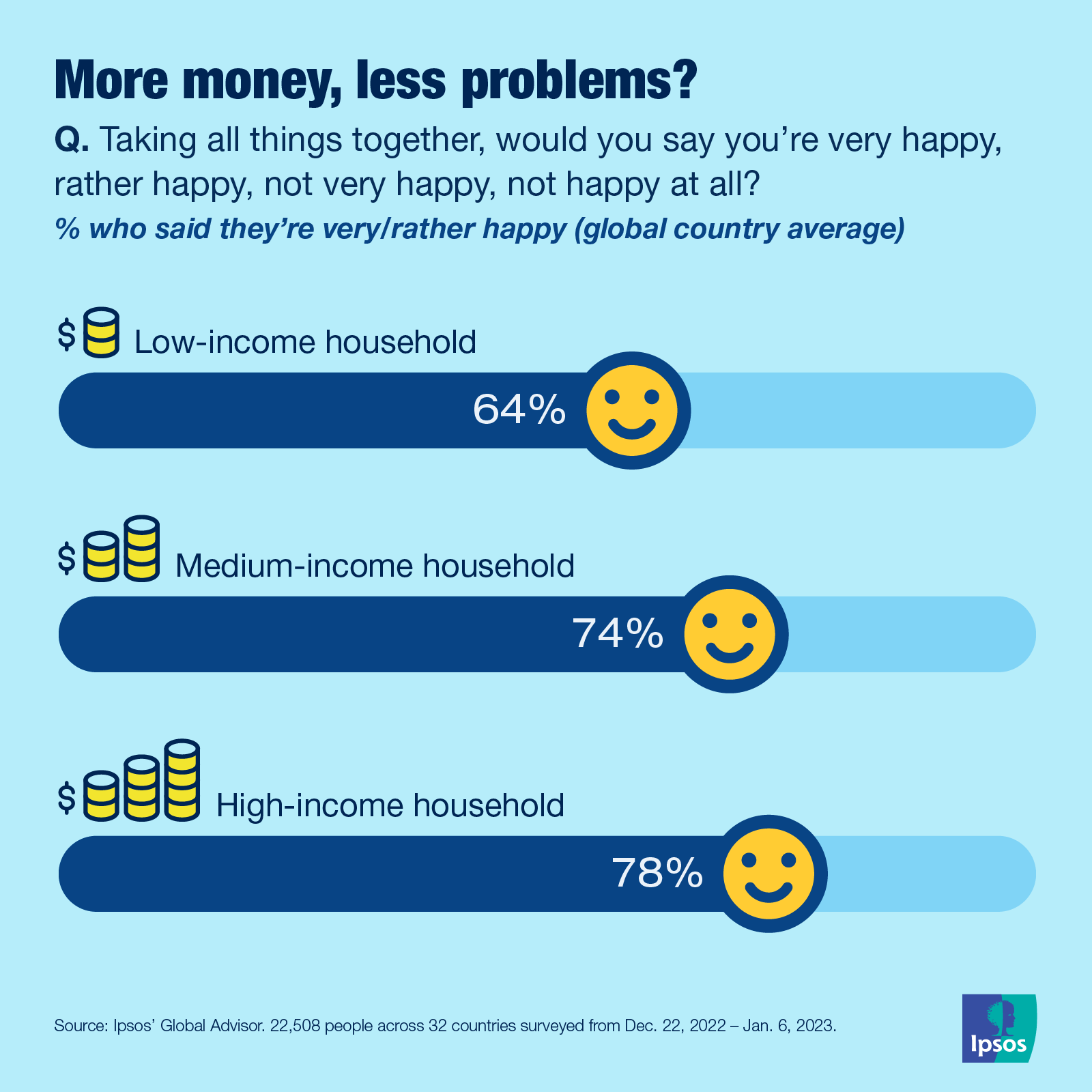
- Happiness and marriage tend to go together like a horse and carriage
Married couples in many TV sitcoms are often portrayed as being pretty miserable while barely putting up with their spouse. But our polling finds that IRL, married people are 11 percentage points more likely to say they’re very/rather happy (79%, on average globally), compared to just 68% of the unmarried.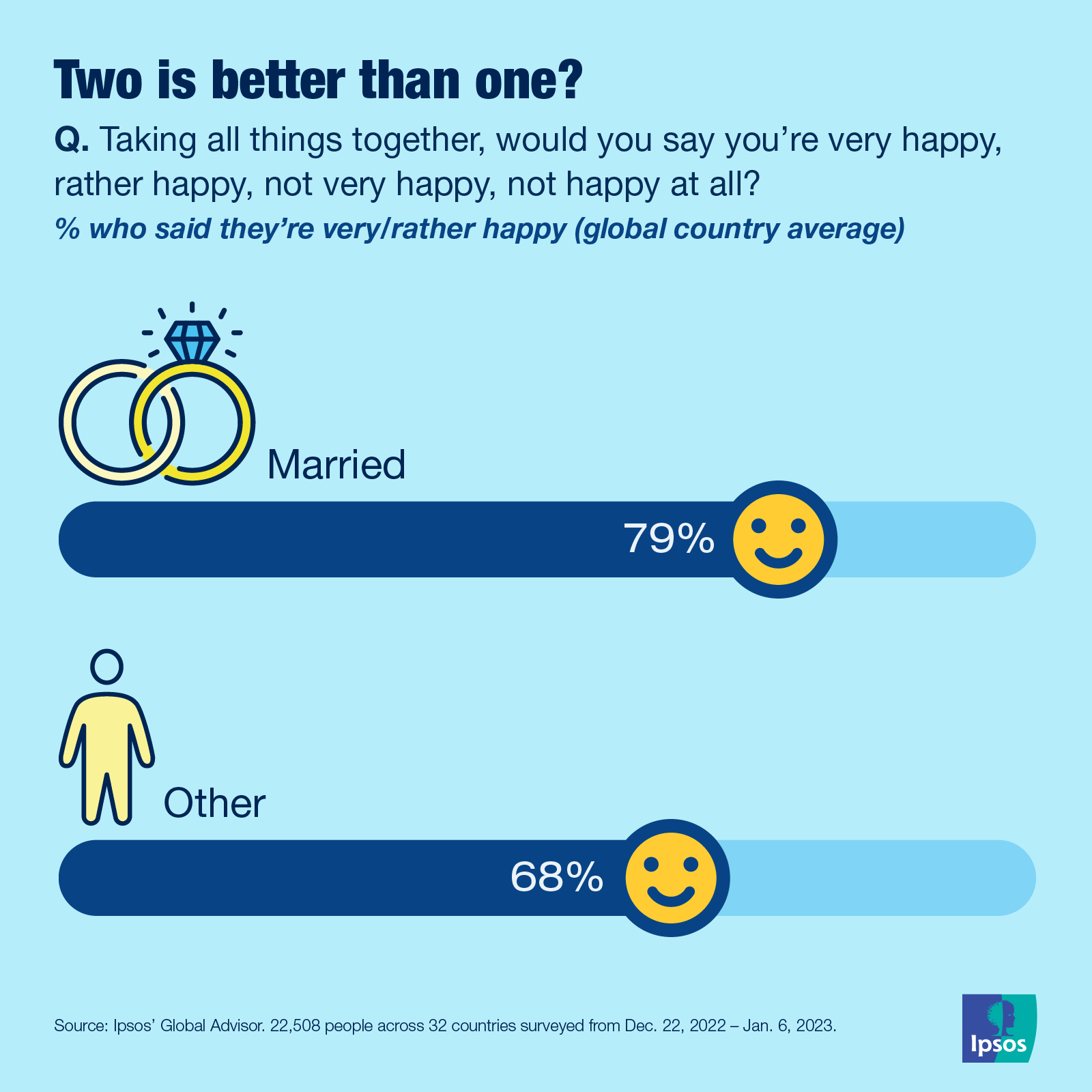
- Higher learning, higher happiness?
Hey, kids – here’s yet another reason to study for that test and stay in school. People, on average globally, with a higher level of education are happier than those with a lower level of education.
- Happiness drivers differ
Ipsos’ Global Happiness 2023 report found men’s reported happiness levels were correlated most strongly with being satisfied with their personal financial situation, while women’s reported happiness level most strongly correlated with feeling satisfied with their relationship with their partner/spouse. While the drivers of happiness diverge, there’s ultimately close to no difference between the happiness levels of women (74%, on average globally) versus men’s (73%).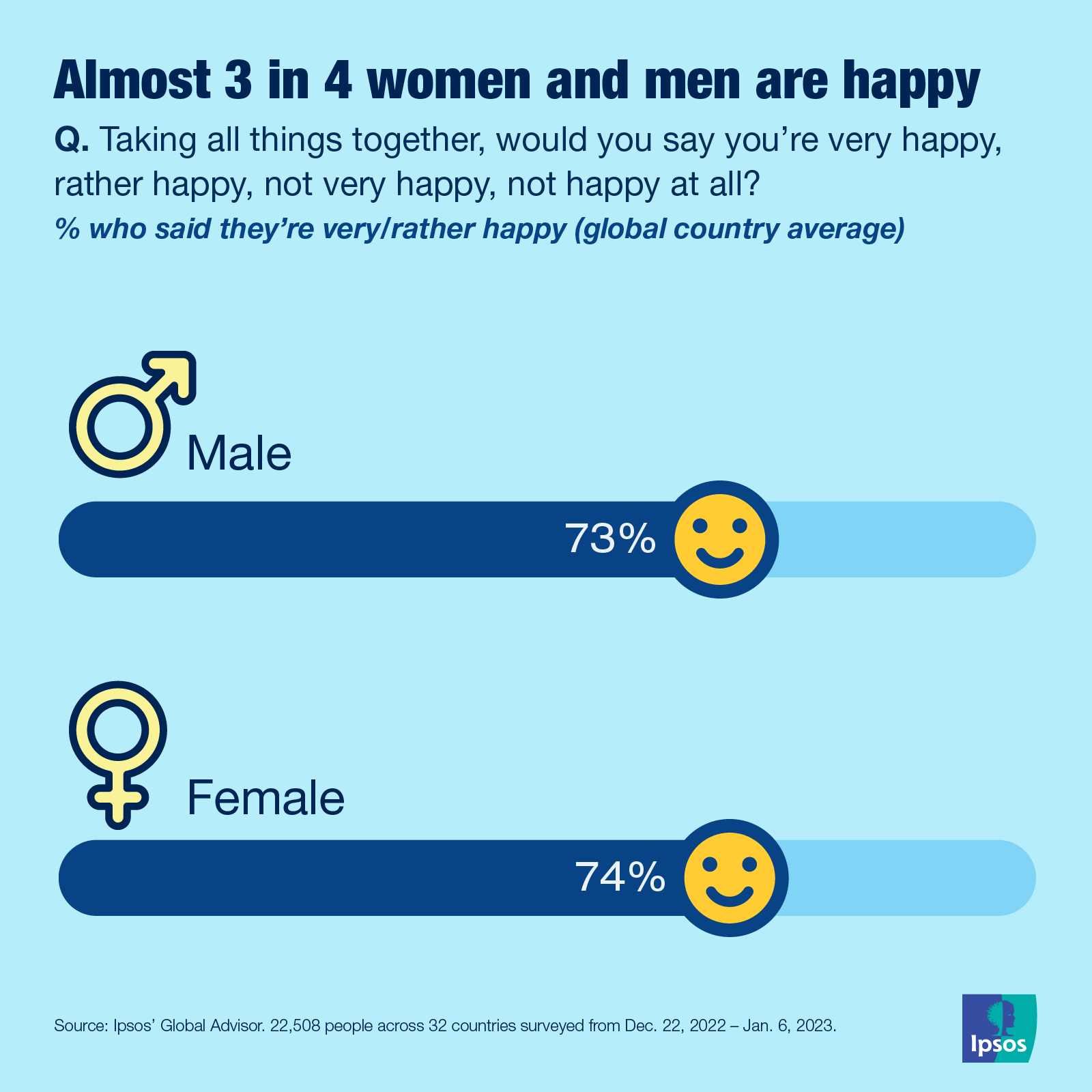
- Talking about the generations’ happiness
Though many people of all ages have faced serious difficulties these past few years, the vast majority (from fresh-faced students to seasoned seniors) report feeling rather or very happy. Now, there’s something to smile about…